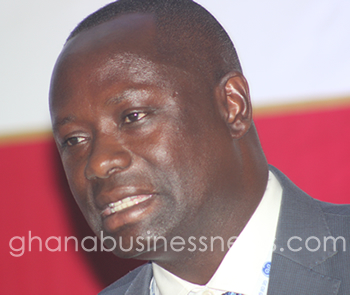
By Ferdinand D. ADADZI

Introduction
Timestamp: Thursday, 14th March, 2024 @ 10.06 pm.
We are back to erratic power supply.

 You can call it dumsor or it is not?
You can call it dumsor or it is not?  Fact still remains, there are serious challenges in power supply to residents and businesses. In the midst of the challenges, there are plenty of opportunities. Offgrid mini solar power supply is one and a low-hanging fruit. We have the sun.
Fact still remains, there are serious challenges in power supply to residents and businesses. In the midst of the challenges, there are plenty of opportunities. Offgrid mini solar power supply is one and a low-hanging fruit. We have the sun. 


Enablers
All we need are as follows:
- Sponsor – who sets up the project company to implement a business scheme where the offgrid solar system is installed for residents and businesses without the user paying the total cost. For example, a four-bedroom house, on average, requires a solar installation costing between ¢70k to ¢100k. Affordability may be a challenge for the average worker. However, a four-bedroom household spends a monthly electricity bill of ¢1000 to ¢2500. Under the scheme, the project company bears the initial installation cost. The finance is structured so that you simply pay your monthly bill as the cost of the use of the power credited towards the cost.
- Investor / Financier – the sponsor will require financing. The financing provided is used for the capex and opex for the solar system. The repayment is structured based on the monthly bill payments from the consumers paid to the sponsor/project company and partly used to repay the loan from the lender financier. As security, charges are created over the solar systems, receivables, plus guarantees if required. Equity investors also have the opportunity to be shareholders in the project company.
- Consumers – these are the businesses and domestic users who have to endure the erratic power supply. They get their own power system with the option to buy off anytime they are in the position to do. Meanwhile, they get regular power supply based on monthly bill payments plus maintenance fees payable since the solar system is within their control.
- Regulator – the government still remain the regulator through the Energy Commission (albeit more efficient) to safeguard the interest of all the parties involved. The roles will include licensing the sponsor and project company, setting key performance indicators for supply, liaising with the government to continue with policy to scrap duty on solar panels and accessories to make them a bit cheaper for all, and licensing the installers and certifying the panels and accessories.
Solution?
Simple but workable solution? Why are we not doing it? Well, I wish I knew. I am just sleeping without power in the heat, thinking out loud. We will all be on our way to work after sleeping in the heat while the politicians debate whether it is dumsor or not, and the seller of power who needs consumers will boldly tell us that buying what you want, paying for it, and getting it when you want it is a privilege.
Do you have a plant powering your residence? Even if you do, as you switch to the plant when ECG withdraws your privileges, I imagine you spend about ¢500 on diesel or petrol for each withdrawal of privilege for a night. As privilege is withdrawn 5 to 8 times a month, that is ¢2500 to ¢4000. Offgrid solar power should make economic and environmental sense to you or not? Add the environmental advantages, employment opportunities and profit to the sponsor and financiers. You can think of the carbon footprint reduction and all on your own. Then add to it the goodwill for you or your businesses in relation to sustainability and ESG related things. 


Conclusion
If you are getting into this, know that it requires a comprehensive transaction structure, well-drafted agreements and compliance with laws. Talk to a transactional lawyer. 
Internet wahala? 
[i] Ferdinand D. Adadzi is a Partner at AB & David, a multi-specialist pan-African business law firm practising in many jurisdictions in Africa, including Ghana. He is a member of the firm’s Energy, Infrastructure & PPP Group, Corporate & Finance Group and Government Business Group. Ferdinand has over twenty years’ experience advising both government and private sector entities on infrastructure transaction and power projects. He is also a senior lecturer at GIMPA Faculty of Law, lecturing in Company Law and Contract Law. He has many publications to his credit, including a seminal textbook on Company Law titled ‘Modern Principles of Company Law in Ghana (R. Ed)’.
Contact: Tel: 233 (0)24 226 2180; Email: [email protected]
The post Offgrid Solar Power : Solution to Dumsor or What is Not Dumsor appeared first on The Business & Financial Times.
Read Full Story


















Facebook
Twitter
Pinterest
Instagram
Google+
YouTube
LinkedIn
RSS